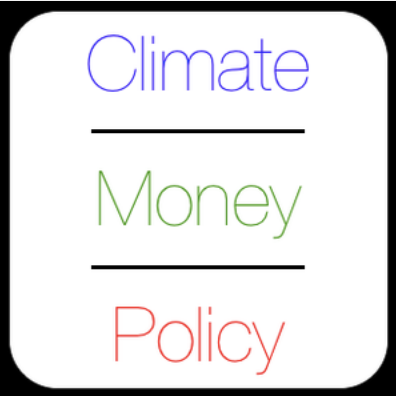Divestment - the PR boost that costs you nothing
/What does the Unitarian Universalist Association, the city of San Francisco and Wallace Global Fund have in common? They've all gotten their investment dollars out of the carbon economy and they're not alone. There's a huge push on right now to move money out of fossil fuel investments. Cities, universities and pension funds of all stripes are moving money away from carbon-based investments and reaping great press while doing it. Why is this happening and how can your marketing department make hay with it? To start with you're going to need to understand the rational of divestors which goes like this:
2℃ is the limit to the additional heat the atmosphere can tolerate without unmanageable consequences. No one disputes this number as a scary upper limit and some think it's too high. The United Nations' Conference of Parties summits are an ongoing effort to build a roadmap for this goal.
2800 gigatons- this is the (rough) amount of proven reserves of oil, coal & gas on the books planet wide right now.
5x- the amount by which those reserves exceed the amount of "burnable" fossil fuel energy if that two degree limit is to be observed.
The stock prices for oil, coal & gas companies are largely a function of their proven reserves because an oil company with no oil is worth nothing. This is pushing a lot of responsible money managers to get out of potentially unstable or overvalued stocks in the energy sector. There's another way to look at the issue in addition to the strictly financial and this is where your marketing department should be given a memo.
Lemonade from lemons
Lots of businesses have some form of retirement plan for their employees. Not all certainly, but if you ask the ones that do you'll likely find out that their reasons for offering those plans aren't just about getting the better hires. You most often get answers like, "We want to take care of our people." Surveys consistently show that companies perceived as caring about their employees get better work from those employees.
Leveraging the inevitable- It's entirely possible that no matter what happens to regulation over the next few years that your employees will be insulated from the carbon bubble but why chance it? Every indicator (executive action, judicial action & the 700+ meetings with legislators and their staffs this year by carbon tax lobbyists) points to a price being put on carbon and when that happens the stocks will suffer. Ceres the non-profit coalition of 100+ investors managing over $11Trillion (yes trillion) has made exposing the liability of the carbon bubble a core issue. So yes, if you care about your employees retirement savings you should be looking to transition away from a high carbon liability, but let's put all of that aside and talk about the optics
The optics- Reporters hate climate change. It's a depressing story with very little good news and lots of tragedy that never directly attributable to a singular guilty party. It also happens to be an issue that never has a face to it. Give them one.
- First, move what money you can out of the carbon market. Direct the program manager for your employee plans to eliminate anything with coal, oil & gas companies.
- Second, put out a press release. "Our organization doesn't want to invest money for our employees' retirement with companies that are making those retirement years unlivable." Release it to every local paper, and every state paper.
- Last, make a big deal of it with your people. Let your customers, suppliers and trade groups know. When well executed you can get a lot of attention and turn that attention into customers.
Other benefits- A prior Climate|Money|Policy post talked about the statistics and benefits of being (or at least being seen to be) focused on sustainability in your organization. This tactic, divestment, is a cheap and virtually painless way to test the sustainability waters. If you're a marketeer, CFO, owner, partner or investor you should have it in your toolkit and consider the benefits because this is the lowest of low-hanging fruit.


